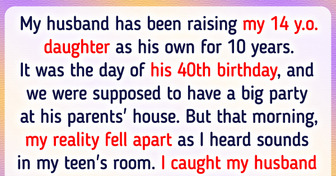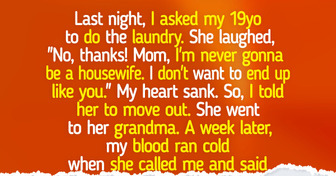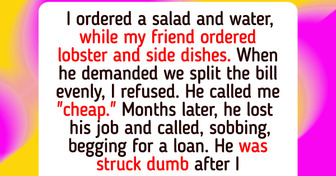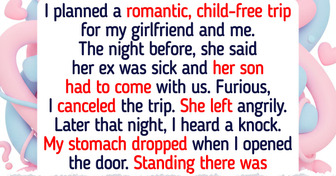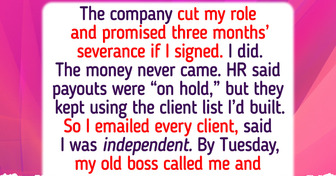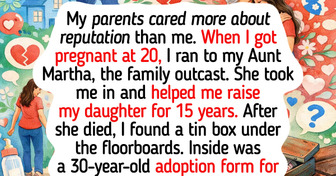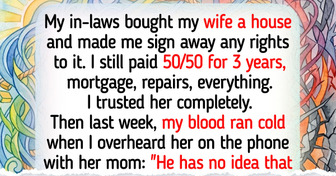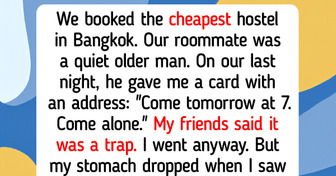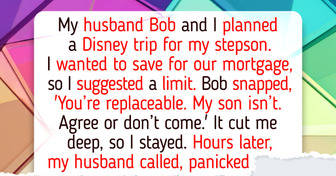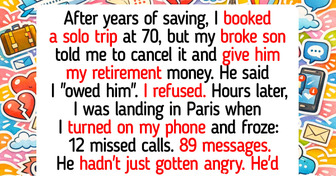15 Stories About People Who Suddenly Got a Huge Amount of Money
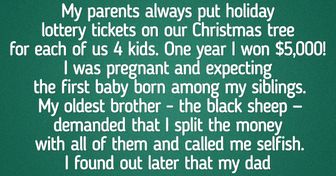
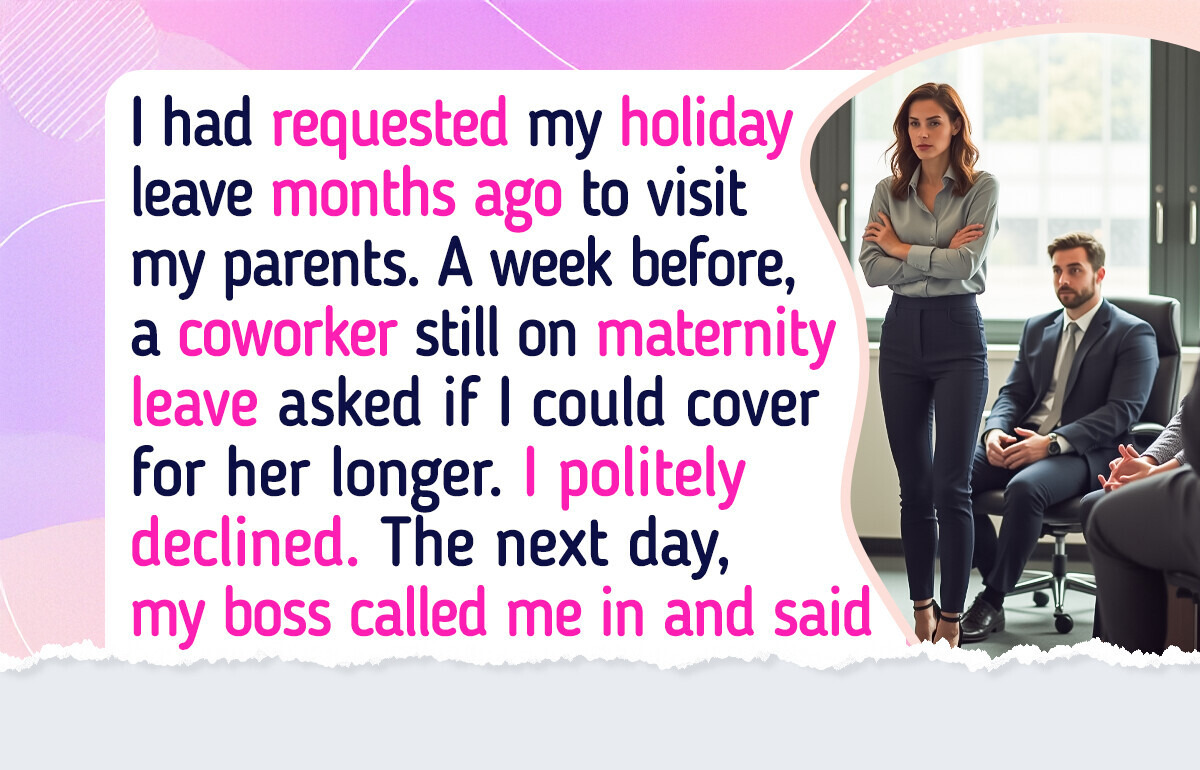
Sometimes, even the simplest decisions — such as saying ’I can’t’ — can lead to an emotional storm if the environment is not ready to understand. That’s exactly what happened to one of our readers. She wrote to us, opening up about her experience and looking for comfort and understanding. Her story raises a question that is often silenced: Why do some lives seem to be worth less than others? This is what she told us:

"Dear Bright Side,
I’m not one to write this kind of thing. I never thought it was necessary or that anyone on the other side would understand how I feel. However, I am so frustrated, overwhelmed, and alone with my anger today that I have decided to take the plunge.
The story goes like this. For many months, I planned a trip. It wasn’t a luxury holiday or anything like that. It was simply a plan to visit my elderly parents, whom I unfortunately don’t get to see very often. Everything was planned in advance: I had asked for time off work, bought non-refundable tickets, and organised everything with my siblings. This wasn’t a whim; it was an emotional necessity.
I was excited and relieved to be able to see them. I felt like the days were just passing by, but I was happy about that. That is, until something—someone—decided to ruin everything.

A week before the trip, a colleague wrote to me: Daisy. She was on maternity leave and asked if I could cover for her for a few more weeks. She explained that her baby was too young and that it was difficult for her to be separated from him. And I understood her. I really did. You don’t have to be a mother to understand how exhausting and frightening it is to leave a baby. But I also owed something to myself. So, with all the respect in the world, I replied that I couldn’t. I was sorry. I was sorry, but I had already made a commitment to my family that I could not cancel.
I thought that would be enough. I thought that an honest and respectful ’I can’t’ would be enough. I thought everything was fine and that she had understood.
But the next day, the atmosphere in the office felt strange. There was an awkward silence as soon as I walked in. Conversations fell silent at my approach. I ignored it all. I thought it was just my paranoia.

And then something happened that I still can’t forget: my boss arranged a meeting with the whole team and told me in front of everyone, ’Daisy just had a baby—she needs more time. Since you don’t have children, I thought you’d be more flexible. I thought you’d understand; I thought you wouldn’t be selfish.’
I froze.
That’s when I realised how wrong everything was. In seconds, my life was reduced to one category: ’No mother.’ My plans, my family, my emotions... disposable. It was as if not having children meant that I was someone without obligations, without love and without priorities. As if, by not raising a baby, I was automatically available for everything.
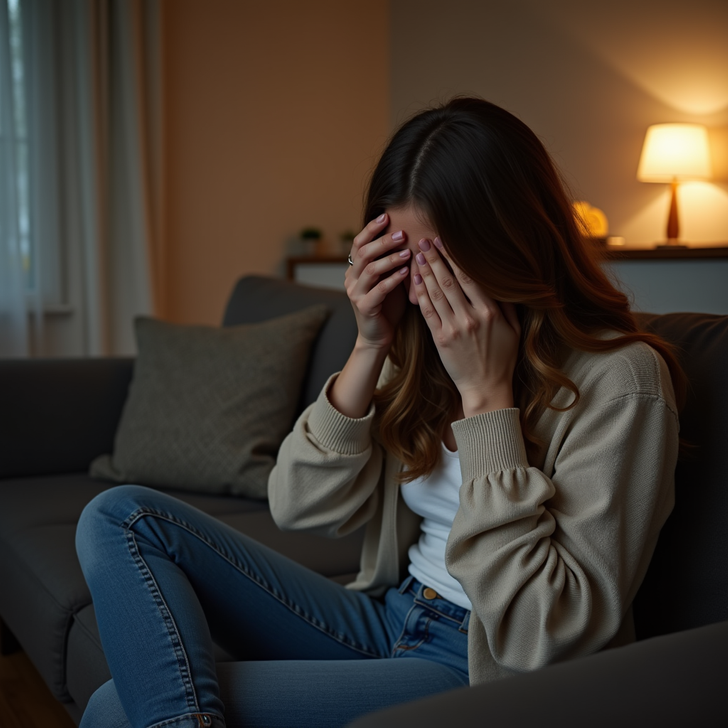
I was paralysed. I was consumed by anger, shame and immense sadness. I said I would think about it simply because I felt I had already been humiliated enough. That day, I went home and cried. Not just because of the injustice, but because of something worse: guilt. Even though I knew rationally that I had the right to say no, part of me still felt bad. Selfish. I felt guilty for prioritising my parents. For choosing myself.
That is why I am writing to you. I don’t want you to tell me if I’m right or wrong; I just want to know if there are other people out there like me. People who felt guilty for setting limits. Who were judged for not being mothers. Who felt that their affection didn’t count just because it didn’t involve nappies and bottles. Dear Bright Side, when will we understand that all lives matter? That care is not exclusive to motherhood? That we all have the right to be cared for and to care for our loved ones. Is being a mother really the only valid argument for them to respect a ’no’?
With love and many doubts,
Brittany."
Thank you, Brittany, for sharing your story with us. We know it wasn’t easy to express how you felt. However, your letter speaks for the many people who have felt invisible at work, who have been judged for their decisions, and who have ever wondered if setting a boundary was selfish. Your testimony reminds us that we all deserve respect, regardless of our marital, parental, or emotional status. And if you identified with what Brittany went through, here are some tips to help you through similar situations.

This letter reminds us that all decisions deserve respect and that choosing not to have children does not mean that you lack priorities, love or responsibilities. What would you do if you were in Brittany’s position? Would you abandon your plans, or would you set the same limit as her?
If you enjoyed this story and would like to continue reflecting on the balance between personal life and work, check out this other article about a woman who was criticised for choosing not to have children, which caused chaos within her family.

